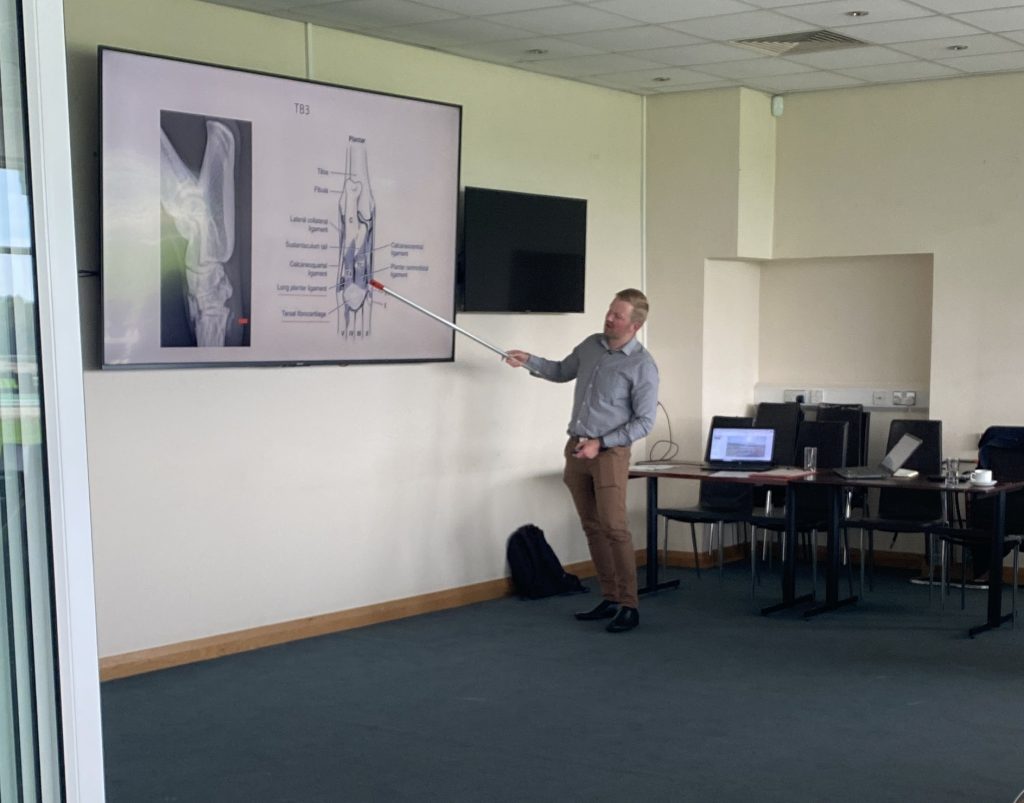Track Vets Hear From Veterinary Experts at Twelfth Annual Training Day
Greyhound racecourse veterinarians gathered from across the country at Nottingham Greyhound Stadium on 2nd October 2025 for the Greyhound Board of Great Britain’s (GBGB) twelfth annual Track Vet Training Day. Throughout the day a series of educational sessions were delivered by veterinarians from various disciplines offering an opportunity for racecourse vets, who are licensed by GBGB, to discuss latest research and exchange expertise and knowledge on greyhound care.
The day began with updates from GBGB Board Director Professor Madeleine Campbell on the implementation of GBGB’s long-term welfare strategy,‘ A Good Life for Every Greyhound’. Through the strategy, this year has seen GBGB’s new team of Regional Regulatory Vets take over the responsibility for trainers’ annual veterinary kennel inspections, while also conducting regular visits to licensed greyhound residential kennels and stadia to offer support to trainers and track vets alike. The latest deliverables achieved through the welfare strategy have been highlighted in the most recent Strategy Progress Report, which was launched this month.

Following these important strategy updates, several sessions were delivered by Dr Richard Payne, Associate Professor of Veterinary Anatomy at the University of Nottingham, in his capacity as scientific and veterinary advisor to GBGB. Dr Payne gave presentations on disease prevention, vaccination guidance and track physics and biomechanics, as well as providing an update on GBGB’s ongoing Disease Surveillance and Monitoring Programme (DSMP).
Vets in attendance also heard from Tomas Petruskevicius, a licensed racecourse veterinarian who led an interactive greyhound orthopaedic case discussion, and Professor Kate White, Professor of Veterinary Anaesthesia and Analgesia at the School of Veterinary Medicine and Science, University of Nottingham, who discussed anaesthetic challenges in greyhounds and comparative physiology. To conclude the day’s events, Clare Kavanagh, an MRes student, provided an insight into her ongoing research on the risk factors for injuries in racing greyhounds.
Reflecting on the success of the day, GBGB’s Executive Veterinarian Tiffany Blackett said:
“These training days provide such an important opportunity for licensed greyhound racecourse veterinary surgeons to get together and share their ideas, experience, expertise and best practice with one another and to further develop their skills through sessions from external veterinary experts.
“The fantastic turnout of track vets at these events clearly shows the value of this training, and we are so very grateful to all our excellent speakers who offered their insights on various aspects of greyhound health and welfare.
“Thank you to everyone who attended and of course to Nottingham Greyhound Stadium for their hospitality once again.”
